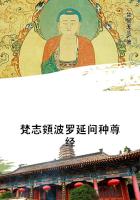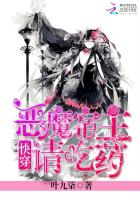"Come up to the bank and I'll explain to you why I didn't discount it.""A speech! Silence!"
"Musicians, cease playing!"
"Strike up 'In the Meadows.'"
"Madame Angot!"
"No! Yakov Tarasovich, we beg of you!"
"That's called Strassburg pastry."
"We beg of you! We beg of you!"
"Pastry? It doesn't look like it, but I'll taste it all the same.""Tarasovich! Start."
"Brethren! It is jolly! By God."
"And in 'La Belle Helene' she used to come out almost naked, my dear," suddenly Robustov's shrill and emotional voice broke through the noise.
"Look out! Jacob cheated Esau? Aha!"
"I can't! My tongue is not a hammer, and I am no longer young.
"Yasha! We all implore you!"
"Do us the honour!"
"We'll elect you mayor!"
"Tarasovich! don't be capricious!"
"Sh! Silence! Gentlemen! Yakov Tarasovich will say a few words!""Sh!"
And just at the moment the noise subsided some one's loud, indignant whisper was heard:
"How she pinched me, the carrion."
And Bobrov inquired in his deep basso:
"Where did she pinch you?"
All burst into ringing laughter, but soon fell silent, for Yakov Tarasovich Mayakin, rising to his feet, cleared his throat, and, stroking his bald crown, surveyed the merchants with a serious look expecting attention.
"Well, brethren, open your ears!" shouted Kononov, with satisfaction.
"Gentlemen of the merchant class!" began Mayakin with a smile.
"There is a certain foreign word in the language of intelligent and learned people, and that word is 'culture.' So now I am going to talk to you about that word in all the simplicity of my soul.""So, that's where he is aiming to!" some ones satisfied exclamation was heard.
"Sh! Silence!"
"Dear gentlemen!" said Mayakin, raising his voice, "in the newspapers they keep writing about us merchants, that we are not acquainted with this 'culture,' that we do not want it, and do not understand it. And they call us savage, uncultured people.
What is culture? It pains me, old man as I am, to hear such words, and one day I made it my business to look up that word, to see what it really contains." Mayakin became silent, surveyed the audience with his eyes, and went on distinctly, with a triumphant smile:
"It proved, upon my researches, that this word means worship, that is, love, great love for business and order in life. 'That's right!' I thought, 'that's right!' That means that he is a cultured man who loves business and order, who, in general, loves to arrange life, loves to live, knows the value of himself and of life. Good!" Yakov Tarasovich trembled, his wrinkles spread over his face like beams, from his smiling eyes to his lips, and his bald head looked like some dark star.
The merchants stared silently and attentively at his mouth, and all faces bespoke intense attention. The people seemed petrified in the attitudes in which Mayakin's speech had overtaken them.
"But if that word is to be interpreted precisely thus, and not otherwise, if such is the case-- then the people who call us uncultured and savage, slander and blaspheme us! For they love only the word, but not its meaning; while we love the very root of the word, we love its real essence, we love activity. We have within us the real cult toward life, that is, the worship of life; we, not they! They love reasoning' we love action. And here, gentlemen of the merchant class, here is an example of our culture, of our love for action. Take the Volga! Here she is, our dear own mother! With each and every drop of her water she can corroborate our honour and refute the empty blasphemy spattered on us. Only one hundred years have elapsed, my dear sirs, since Emperor Peter the Great launched decked barks on this river, and now thousands of steamships sail up and down the river. Who has built them? The Russian peasant, an utterly unlettered man! All these enormous steamers, barges--whose are they? Ours! Who has invented them? We! Everything here is ours, everything here is the fruit of our minds, of our Russian shrewdness, and our great love for action! Nobody has assisted us in anything! We ourselves exterminated piracy on the Volga; at our own expense we hired troops; we exterminated piracy and sent out on the Volga thousands of steamers and various vessels over all the thousands of miles of her course. Which is the best town on the Volga? The one that has the most merchants. Whose are the best houses in town? The merchants! Who takes the most care of the poor? The merchant! He collects groshes and copecks, and donates hundreds of thousands of roubles. Who has erected the churches?
We! Who contributes the most money to the government? The merchants! Gentlemen! to us alone is the work dear for its own sake, for the sake of our love for the arrangement of life, and we alone love order and life! And he who talks about us merely talks, and that's all! Let him talk! When the wind blows the willow rustles; when the wind subsides the willow is silent; and neither a cart-shaft, nor a broom can be made out of the willow;it is a useless tree! And from this uselessness comes the noise.
What have they, our judges, accomplished; how have they adorned life? We do not know it. While our work is clearly evident!
Gentlemen of the merchant class! Seeing in you the foremost men in life, most industrious and loving your labours, seeing in you the men who can accomplish and have accomplished everything, Inow heartily, with respect and love for you, lift my brimming goblet, to the glorious, strong-souled, industrious Russian merchant class. Long may you live! May you succeed for the glory of Mother Russia! Hurrah!"The shrill, jarring shout of Mayakin called forth a deafening, triumphant roar from the merchants. All these big, fleshy bodies, aroused by wine and by the old man's words, stirred and uttered from their chests such a unanimous, massive shout that everything around them seemed to tremble and to quake.
"Yakov! you are the trumpet of the Lord!" cried Zubov, holding out his goblet toward Mayakin.















